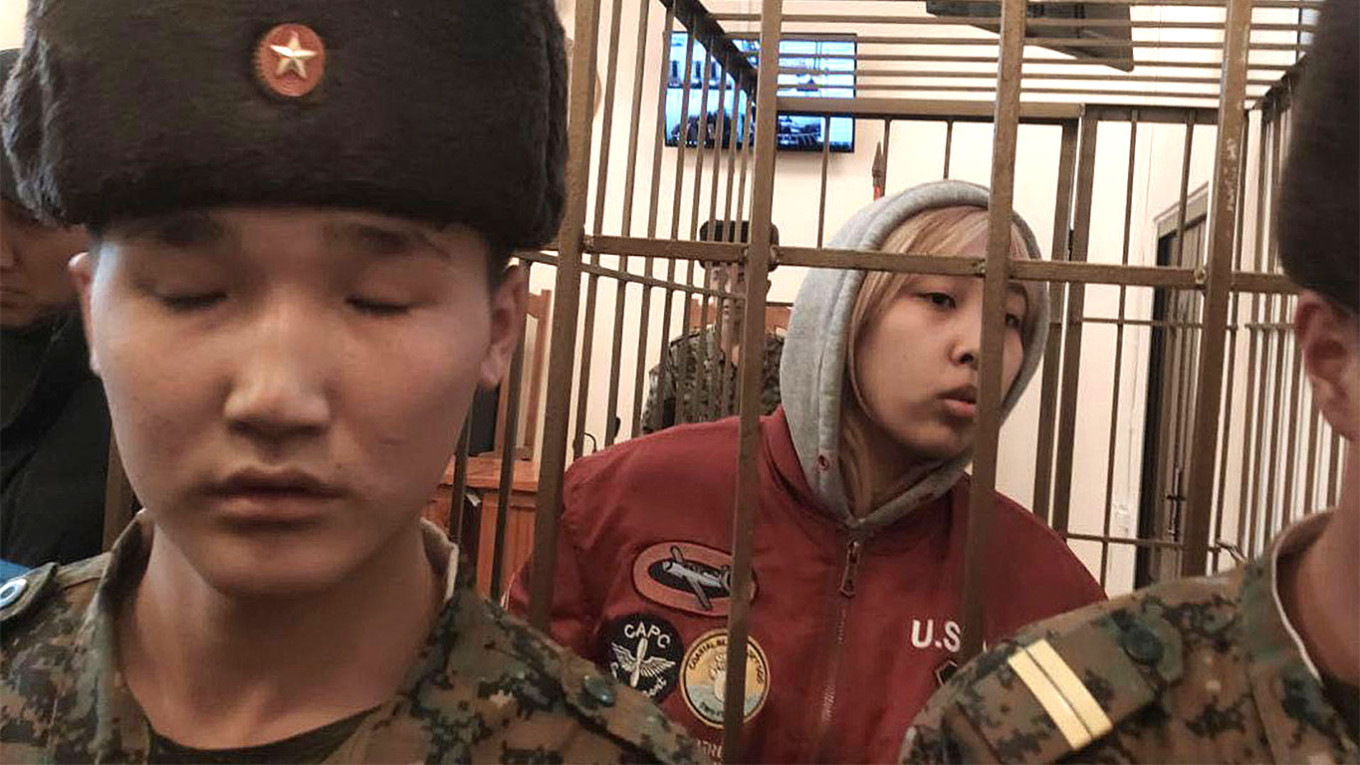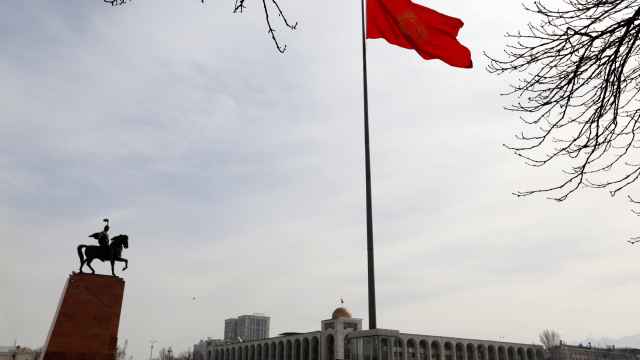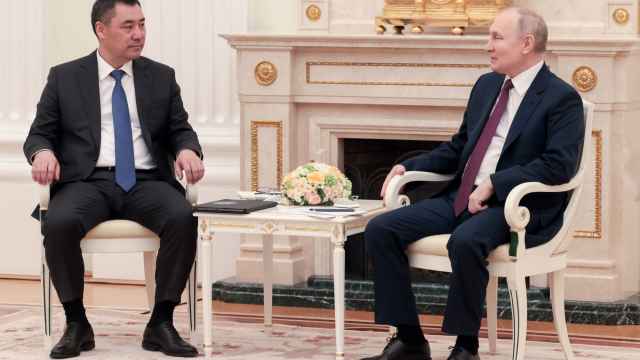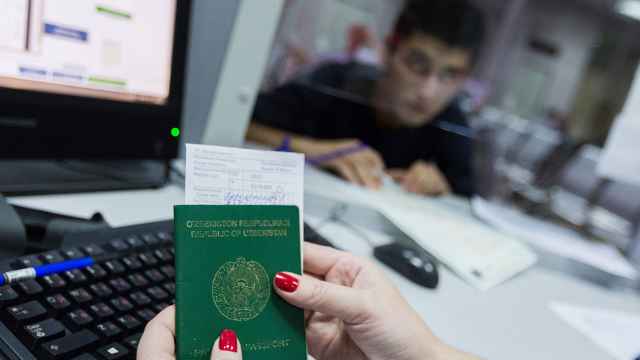The recent death of Alexei Navalny has ramifications that go well beyond Russia's borders. It casts a shadow, ominous and chilling, over every nation touched by the Kremlin's influence.
One of them is Kyrgyzstan, my home country, which is currently navigating its own struggle against encroaching authoritarianism.
Once praised as the "island of democracy" in the region, Kyrgyzstan is undergoing a disquieting transformation, visible through dwindling freedom ratings, silenced opposition, and imprisoned journalists and activists.
This decline traces back to 2014 when Russia, emboldened by a lack of consequences for its annexation of Crimea and launch of the war in eastern Ukraine, intensified its influence campaign in Central Asia. Kyrgyzstan, with its democratic aspirations, became an impediment to Moscow's regional dominance.
In an insidious series of developments, Kyrgyzstan adopted the worst practices from its former colonial metropole. Chief among these has been the emulation of Russia's repressive legislation.
In April 2014, the same month when the first battles erupted in eastern Ukraine, Kyrgyz lawmakers introduced a “gay propaganda” bill. Strikingly reminiscent of a Russian law signed by President Vladimir Putin in July 2013, the Kyrgyz iteration proposed forbidding media outlets from "disseminating information about non-traditional sexual relationships".
Just two months later, the Kyrgyz parliament took another repressive turn, unfurling a bill that wielded sanctions against "foreign agents". This term, directly lifted from Russia's notorious law that has stifled the efforts of human rights organizations, opposition politicians, and independent media outlets, found an unsettling resonance in Kyrgyzstan.
In response, Kyrgyz civil society stood firm against both initiatives. Buoyed by considerable public pressure from international organizations and Western governments, efforts were made to thwart these bills – efforts that eventually gave significant results.
The "foreign agents" bill was rejected by the Kyrgyz parliament in 2016, while the "gay propaganda" bill, failing to advance beyond its initial stages, languished in legislative oblivion after most of its authors lost their parliamentary seats following the 2015 elections.
This triumph occurred despite the escalating influence of Russia, culminating in Kyrgyzstan's inclusion in the Moscow-led Eurasian Economic Union in 2015.
However, the dynamics shifted after the 2020 revolution — a promising development that lost its allure when organized crime entangled itself in the country's political affairs.
In 2021, newly elected president Sadyr Japarov, in collaboration with ally Kamchybek Tashiev, who presides over the country’s National Security Committee (formerly KGB), executed a sophisticated display of replicating Russian authoritarianism.
Through changing the Constitution, the president was given greater powers by granting longer terms and weakening the authority of the parliament. The introduction of stringent media law has effectively empowered the Kyrgyz Ministry of Culture to function as a de facto censorship body. This newfound authority allows the ministry to arbitrarily block independent news websites without the need for a formal trial.
Two years after Japarov came to power, the idea of a "foreign agents" bill resurfaced. But unlike in 2016, Kyrgyz civil society seems unable to mount robust opposition. The bill has advanced through two parliamentary readings, and now hovers merely two steps away from turning into law.
The primary reason for the scant opposition to growing authoritarianism is that today’s Kyrgyzstan not only embraces laws inspired by Moscow, but also a wider range of Russia's suppressive political tactics.
Over the past three years, the authorities organized an unparalleled assault on civil society, echoing reminiscent strategies employed by the Kremlin.
Leading opposition politicians are either behind bars or compelled to withdraw from politics. Several prominent human rights activists spent months in prison for criticizing the transfer of the Kembir-Abad reservoir to neighboring Uzbekistan.
Independent media outlets, including the one I co-founded, are grappling with formidable challenges – ranging from lawsuits and blocking websites to arresting journalists. The country also witnessed a surge in arrests for people merely expressing their opinions on social media.
In addition to that – as if there was not enough bad news – Kyrgyz authorities imposed heavy restrictions on protests in the spring of 2022. This step followed a series of demonstrations against the Russian invasion of Ukraine, notably staged at the Russian Embassy's doorstep in Bishkek.
But why does Russia cling so fervently to Kyrgyzstan?
With its cunning geopolitical strategy, Russia found Bishkek to be a convenient pawn for the Kremlin's imperial ambitions. Kyrgyzstan became a conduit for the flow of sanctioned goods into Russia, including crucial electronic components for weapons production. This results in some astonishing figures in foreign trade data – Poland alone witnessed a staggering 1700% increase in exports to Kyrgyzstan since 2022.
Furthermore, Moscow’s influence eliminated the only true democracy in Central Asia. Kyrgyzstan's historical transitions of power, and its vibrant political scene, have now become a distant memory.
There is a reason why I started this piece by mentioning Alexei Navalny.
Navalny's death has raised the bar of Russia's cruelty. While not the first instance of an activist meeting a tragic end in custody in Russia, it stands out as the first occurrence where somebody so prominent and famous dies behind bars.
Similar dynamics could transpire in Kyrgyzstan. There have already been suspicious deaths of public figures behind bars since Japarov assumed the presidency. But Navalny's demise could escalate this trend to unprecedented levels.
Regrettably, Kyrgyz prisoners lack the same international spotlight as Navalny, leaving them without the widespread attention that could prompt global headlines and demonstrations across major cities worldwide.
Prominent opposition figures like former members of parliament Adakhan Madumarov and Ravshan Jeenbekov remain imprisoned, the latter asserting he endured torture. Eleven current and former journalists from the investigative outlet Temirov Live were arrested in January.
Today, the detention of eight of them was extended, and they will remain in custody at least until May 13. All of these journalists are awaiting trial on charges of "inciting protest actions and mass unrest" – a justification frequently employed by Kyrgyz authorities that is heavily inspired by Russian practices. Several social media users are also in detention for criticizing authorities, with some of them being Kyrgyz migrant workers arrested in Moscow and then deported to Kyrgyzstan.
Navalny's passing deepens my concern for these people. Not only because they have been unjustly arrested. I am genuinely fearful for their lives.
If dictators learn from each other (and they most certainly do), the recent example Russia gave is terrifying: an opposition figure can perish in prison, no one will be held accountable, while the majority of the country's population will stay silent.
I hope that every force capable of swaying the authorities in my country will prevent Kyrgyzstan from continuing to replicate this pattern.
A Message from The Moscow Times:
Dear readers,
We are facing unprecedented challenges. Russia's Prosecutor General's Office has designated The Moscow Times as an "undesirable" organization, criminalizing our work and putting our staff at risk of prosecution. This follows our earlier unjust labeling as a "foreign agent."
These actions are direct attempts to silence independent journalism in Russia. The authorities claim our work "discredits the decisions of the Russian leadership." We see things differently: we strive to provide accurate, unbiased reporting on Russia.
We, the journalists of The Moscow Times, refuse to be silenced. But to continue our work, we need your help.
Your support, no matter how small, makes a world of difference. If you can, please support us monthly starting from just $2. It's quick to set up, and every contribution makes a significant impact.
By supporting The Moscow Times, you're defending open, independent journalism in the face of repression. Thank you for standing with us.
Remind me later.








